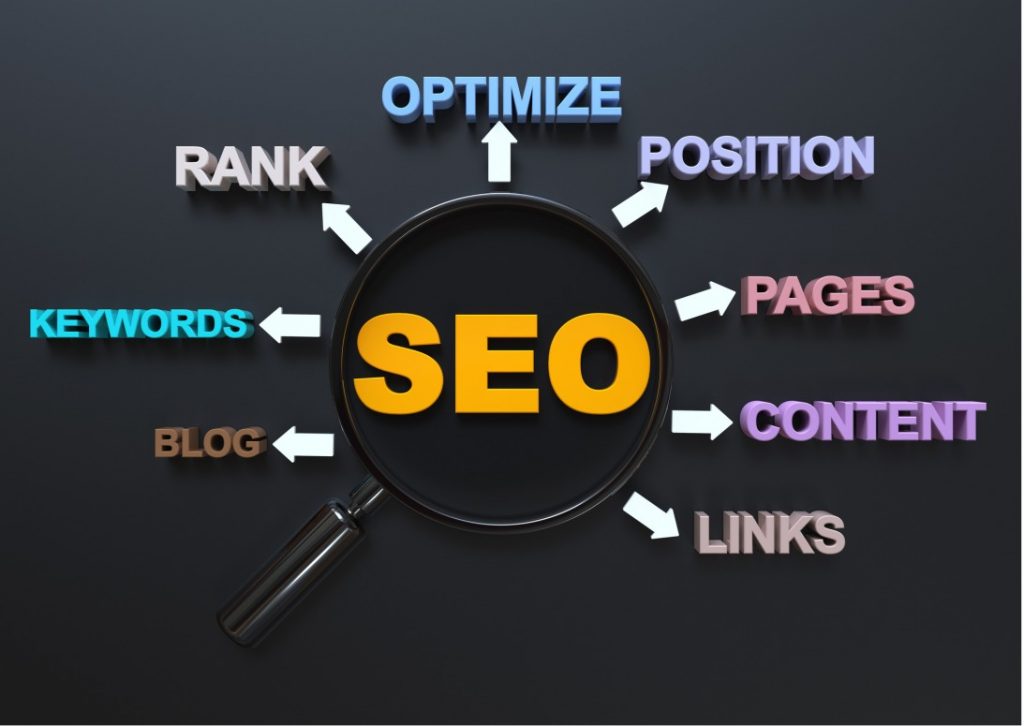Why SEO is important for your Business

In the age of smartphones and high-speed internet, the way consumers interact with businesses has fundamentally changed. With a few taps on a screen, potential customers can discover, evaluate, and engage with companies from across the globe.
In this context, your business’s digital presence is akin to its storefront, and its visibility online can make or break your success.
SEO, short for Search Engine Optimization, is the factor that empowers your online presence to shine amidst the vastness of the internet.
In this article, we’ll delve into what SEO is, how it works, and the manifold benefits it offers to businesses of all sizes.
What is SEO?
Before delving into the intricacies of SEO, it’s essential to understand the pivotal role that search engines play in shaping online user behavior. When individuals seek information, products, services, or solutions, their journey typically starts with a search engine query. Research indicates that approximately 80% of consumers initiate their quest in this manner, underscoring the paramount importance of securing a prominent position within search engine results pages (SERPs).
How Search Engines work

Search engines rely on complex algorithms to sift through the vast amount of web content and deliver relevant results to users. These algorithms consider numerous factors when determining a website’s rank, including Keyword usage, Content quality, User Experience (UX), and more. Understanding how these algorithms operate is key to effective SEO.
The role of Keywords and Content in Search Rankings
Keywords are the foundation of SEO. They are the specific terms and phrases users enter into search engines to find information. Effective SEO involves meticulous research, leveraging top-notch tools such as SEMrush or Ahrefs, to identify the keywords that resonate with your target audience. Subsequently, the strategic integration of these keywords into your website’s content stands as a vital strategy for enhancing your search engine rankings.
The benefits of SEO for Business success
Realizing the benefits of SEO is fundamental for any company striving for digital success. In this section, we’ll delve into the tangible benefits that an effective SEO strategy can bring to your business.
1. Increased Visibility and Traffic
When it comes to search results, most users rarely explore beyond the initial page. SEO plays a crucial role in positioning your website on that coveted first page, vastly amplifying its visibility to potential customers.
Enhanced visibility directly correlates with a surge in website traffic. When your site achieves high rankings for pertinent keywords, it becomes a magnet for organic traffic from users actively in pursuit of the products or services you offer.
2. Credibility and Trust
High search engine rankings don’t just boost visibility, they also build credibility and trust. When users see your website consistently appearing at the top of search results, it instills confidence in your brand. This trust is further reinforced by positive online reviews and ratings.
Managing your online reputation is a crucial facet of SEO. As potential customers research your business, positive online feedback and ratings contribute significantly to their perception of your trustworthiness. SEO is not just about climbing search engine rankings, it’s about cultivating a reputable and trustworthy online presence.
3. Targeted Audience Engagement
Effective SEO isn’t solely about driving any traffic to your site, it’s about attracting target customers—the right, relevant traffic—users who have a genuine interest in your products or services. This concept is founded on the proficient use of keywords. By thoughtfully integrating strategically chosen keywords into your content, you can customize your website to cater to the specific needs and interests of your target audience.
Long-tail keywords, which consist of specific phrases addressing niche queries, empower you to target highly relevant audiences, often leading to higher conversion rates.
4. Cost-Effective Marketing
When compared to traditional advertising methods, SEO consistently offers a higher return on investment (ROI). This is because SEO is tailored to reach users who are actively seeking products or services like yours.
While it may require an initial investment, its long-term benefits far surpass the costs. Once established, high search engine rankings can drive consistent organic traffic to your website without the ongoing expenses associated with traditional advertising. It’s a marketing strategy that not only saves you money but also delivers sustained results, making it a wise choice for businesses seeking to optimize their marketing budgets.
SEO Best Practices for Business Success

Unlocking the full potential of SEO requires mastering its best practices. In this section, we’ll delve into the most effective strategies for enhancing your online presence, driving targeted traffic, and establishing your brand as an authority online.
1. Keyword Research and Optimization
Keyword research is at the core of successful SEO. It starts with understanding the language your target audience uses when searching for products or services. By utilizing tools like Google Keyword Planner, SEMrush, or Ahrefs, you can uncover valuable insights into the phrases and terms that resonate most with potential customers. These keywords form the foundation of your SEO strategy.
Once you’ve identified your target keywords, the next step is strategic optimization. This involves seamlessly integrating these keywords into your website’s content, meta tags, headers, and more. The aim is to make your content not only search engine-friendly but also engaging and informative for your human audience.
2. On-Page SEO
On-Page SEO involves refining various elements on your website to make them accessible to search engines and engaging for your audience. This includes a series of strategic enhancements directly on your webpages:
- Optimization of title tags, meta descriptions, and headers
- Optimization of images and videos, including descriptive alt text, captions, and proper file names
- Crafting high-quality, relevant, and engaging content that aligns with your keyword strategy
- Enhancing user experience (UX) to ensure your site is mobile-friendly and loads quickly
In essence, On-Page SEO forms the foundation of your digital presence, making your website not only visible but also engaging, informative, and user-friendly.
3. Quality Content Creation
In the dynamic realm of SEO, one enduring factor stands tall: the paramount importance of high-quality content. Quality content exhibits relevance, value, and the power to engage your audience by addressing their needs and interests.
Furthermore, effective content creation extends beyond text, embracing diverse formats like:
- articles
- blog posts
- videos
- infographics, and more
This diversification caters to various learning styles and widens your audience reach.
Consistency is also pivotal: frequent updates convey site activity and relevance, positively impacting search engine rankings and audience retention.
Lastly, for businesses aspiring to establish authority in their niche, content should showcase expertise and thought leadership through insightful industry knowledge, setting you apart as a trusted source.
4. Mobile Optimization
In today’s SEO landscape, mobile optimization takes center stage due to the widespread use of smartphones and tablets for online activities. Key to this is responsive web design, ensuring your website adapts seamlessly to mobile devices, providing a user-friendly experience.
5. User Experience (UX) and Website Speed
User experience and website speed are components that can significantly impact your website’s performance and search engine rankings.
Users expect webpages to load quickly, especially on mobile devices, so slow-loading pages can lead to frustration, increased bounce rates, and diminished user engagement.
A user-friendly website not only loads quickly but is also easy to navigate. Clear and intuitive menus, well-structured content, and easily clickable buttons and links contribute to a positive user experience and better user retention.
6. Backlinks and Off-Page SEO
Backlinks are essentially links from other websites to your own, and search engines view them as a sign of authority, and consider your content as valuable and trustworthy.
But not all backlinks are equal, and search engines place a premium on the quality of backlinks rather than their quantity. A few high-quality backlinks from authoritative websites can have a more significant impact on your SEO than numerous low-quality links.
Off-page SEO, with a focus on backlinks and online reputation management, is a vital element of a comprehensive SEO strategy. Building high-quality backlinks, fostering a positive online image, and leveraging social signals can all contribute to improved search engine rankings and enhanced online visibility.
Conclusion
As you’ve discovered throughout this article, the digital landscape has completely transformed the way businesses connect with consumers. In today’s increasingly digital world, a strong online presence is essential for your business’s success, and SEO is the key to unlocking your full potential.
By optimizing your website for better search engine rankings, you not only improve visibility but also attract a highly targeted audience actively searching for your products or services. Moreover, SEO’s cost-effectiveness surpasses that of traditional marketing, guaranteeing sustained results.
Are you ready to elevate your online presence and drive business growth through effective SEO?
Contact me today to explore how my SEO consulting services can help you stand out online!


